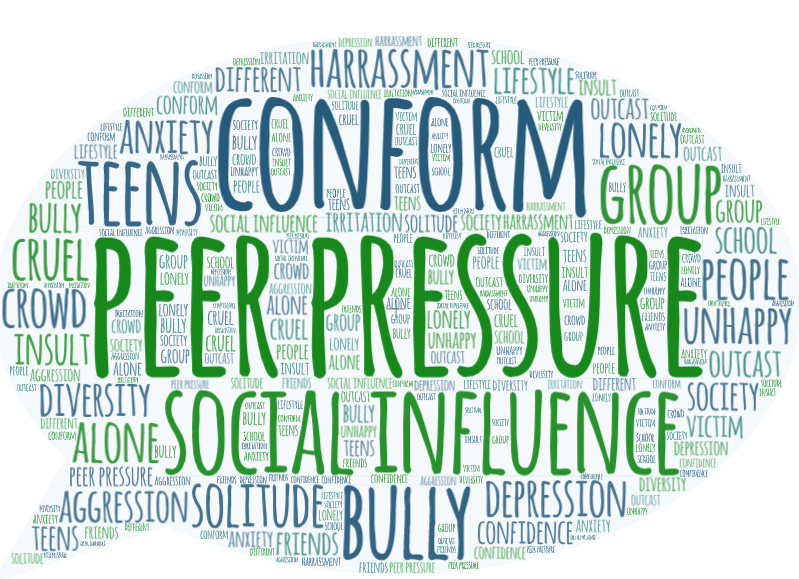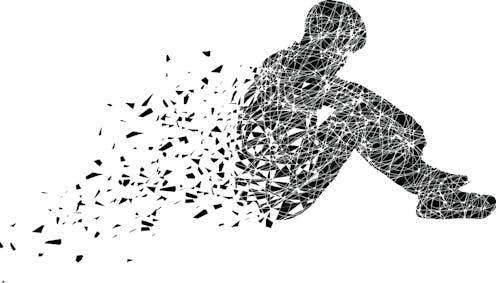Citizenship
Context
Context
Citizenship is a contemporary play, and a genre of comedy that tackles controversial topics.
The playwright of Citizenship is called Mark Ravenhill, and he wrote the play to spread awareness as the main themes are about discovery and finding your sexuality. Furthermore, there are also references to self harming, and there are school students that are involved with drugs. Mark Ravenhill grew up in West Sussex, England and he was captivated with theatre at a young age putting on plays with his brother at the ages of seven and eight. Ravenhill studied English and Drama at Bristol university which led him to take jobs as a workshop leader, teaching Drama in schools and a freelance director. He also worked in the Soho theatre. In the mid-90’s he was diagnosed with HIV+ and his partner died of aids in the early 90’s.
During the 2000’s his work advanced and refined, as well as plays written in the 1990’s for example “Shopping and F***ing” and “handbag” identified as a contemporary British society Whereas now he would be more experimental and abstract. Shopping and F***ing was the play that received a lot of recognition, and became immensely popular. Citizenship is a short play for young people written for the National theatre's National theatre connection programme.
In 2012 Mark Ravenhill became a writer in residence for the Royal Shakespeare Company and also constructed a piece for the London Gay Men’s chorus marking the 21st anniversary. The music composed by Connor Mitchell exploring the stages and mental growth towards dealing with homosexuality, coming out and discovering more about your sexuality.
Mark Ravenhill was part of a movement in 1990’s for Tony Kushner’s monumental angels in America Where they would speak about topics such as religion, politics, sex and race. and also spoke with other people that used gay themes explicitly. For example Bryony Lavery, Phyllis Nagy from America. Also with Kevin Elyot, Alexi Kaye Campbell, Samuel Adamson and along with many others.
Research
Themes
The play Citizenship had a lot of controversy as the main topic Sexuality explores Tom, a teenaged boy who tries experimenting with different people. Getting physical with his male friend, massaging his teacher inappropriately to get information out of him, having sexual intercourse with Amy to end up in the hands with a man at the end of the play. Ravenhill felt the need to include this topic as he believed that there should be more representation in plays of LGBTQ+ for younger people. Furthermore this could portray how a student is discovering who they are. Subsequently, he read the draft to some teenagers and they claimed the play as theirs. He felt overwhelmed by the comments the teenagers gave him and they claimed it as their own. Mark felt it was right by doing this as this belonged to the teenager’s category - age group as the message relates to them.
Sexual Orientation
- Hetero sexual - Males and Females attracted to the opposite sex
- Homosexual - Gay or Lesbians
- Bisexual - Attracted to both sexes
Sexuality is about your sexual feelings towards someone, and it also affects how you view them physically, emotionally and sexually with one another. If someone confronts you about your sexuality asking questions that distresses you then you should seek advice from people you trust.
It's a slow process figuring out your sexuality as you need to know what is most suitable for you as the possibilities are endless with many sexualities. Although some people may not want to choose labels to represent themselves to feel comfortable.
Drugs/Underage Drinking
- Marijuana/ Cannabis
- Cocaine
- Heroin
- Tobacco
- Vodka
- Whiskey
- Beer
- Cider
Alcohol increases the chances of causing harm to the body subsequently mixing alcohol and drugs can bring serious physical damage, behavioral or health complications. Therefore this path can harm your mentality especially introduced at a young age triggering dangerous interactions. People that find that they have an addiction to illicit drugs could find themselves abusing other substances like Cocaine and Heroin.
Most people will drink alcohol as a sign of a relief to forget about a traumatising event happening in their lifetime. This acts as a depressant so they can forget. Moreover containing the amount of alcohol you drink or drugs taken inside your body can lead to dramatic side-effects. Therefore your health will slowly decrease weakening the body.

This can fall in the hands of peer Pressure as well as your friends may try to persuade you to drink it. They may encourage you to do other things your not comfortable of For Example:
- Drinking
- Clubbing
- Smoking
- Ditching school
- Sex
- Standards on Social media
- Charity
Peer Pressure is generally an individual influenced by a big social group among friends. Reasons for doing this would be to feel included and liked by others, and to not have them think a certain way about you. Despite Peer pressure meaning something negative there is also peer pressure where someone is persuading you in a positive manor. Consequently, a person may be encouraged to go to a charity event where they feel they might not be up for task but go because majority of their friends are involved.
Teen pregnancy

In the play Amy has sex with Tom at age 15 and also goes to discuss how she sat her exams while being pregnant. This invokes awareness that many young teens will go through in their life when having sex under the ages of 16. The problems this can cause is not being able to live your life and having to provide for the baby. Most teens will gain emotional support from their family and take advice from other substances such as counselling.
Mental Health
Mental health refers to our behavior and emotional well being through the years of adolescence. 10% of young teens gain mental health throughout adolescence. Signs of mental health may see an individual being outcasted, feeling depressed, having excessive fear, anxiety, and having fear about what people think of you. Insecurity has a wide play into mental health. Also dramatic sleeping and eating habits.
Top 5 Common Mental illnesses

5. Dementia
People with dementia will experience Memory orientation forgetting short term memory for example what they had for dinner yesterday to long term memory of childhood. As well as forgetting their children.
:max_bytes(150000):strip_icc()/schizophrenia-what-you-need-to-know-4156588_v2-1ece0061ce034993b95efb6ad3e95cbf.png)
4. Schizophrenia
- Experience hallucinations - seeing different things that isn’t there and hearing voices that nobody else will see
- Affecting 23 million people
- Constantly looking over your shoulder
- There personality may differ time to time
- May be fearful towards family members shouting and being hateful when unintentionally
/Illo_BipolarDisorder-5a5f93f2f1300a0037ed6955.png)
3. Bipolar
60 million people will experience manic episodes where this elevates their moods or makes them feel irritable.

2. Anxiety
Anxiety is your body’s reaction to stress and feeling worried of what may happen in the future. Nerves are an emotion that is in everyone and can repeatedly affect how you view a certain occasion for example going to a job meeting or your first day of school can leave you wondering how you will feel in the moment. It is fear that people feel and can stop them from trying new things.
- Affecting 40 million adults in the U.S.A or 18.1% population every year
- Multitude of factors
- Insecurity through people’s heads about other people’s opinions
- Life events
- A treatable illness where you can seek advice from counselling. 39.9% will do this

1. Depression
People with this disorder will feel really down and will not feel motivated to do anything. Furthermore this would make it hard to concentrate and have a desire for food, Sometimes no appetite at all. They will feel hopelessness and suicidal thoughts. The symptoms often trigger a certain topic or an event in someone’s life: Loss of a loved one and physical diseases are an example that somebody may be coming to terms with leaving emotional scarring.
- Impacting an estimated 300 million people
- Most common mental disorder
- Generally affecting women more than me
- Loss of interest/Pleasure
- General sadness
- Feelings of guilt or low self esteem
- Difficulty falling asleep
- Eating pattern changes
- Arises in life events, medical problems, and medications
- Long lasting/Recurring
Character/Planning
DeClerk
My character deClerk is a teacher sitting in detention with Tom waiting for him to complete his course work while he marks some work. He is very agitated that he has to hold the detention and wants to sit in silence, Whereas Tom keeps Bombarding him with questions and his bleeding ear that annoys deClerk to his limit.
Me and Shadhut decided to make Tom bleed from his Right ear as it follows in the script, but will change to the left ear if the previous scene does it that way. When deClerk first looks at his phone I’ll show him not bothered, because he just wants to mark his work. We have been covering objectives and his objective is to not answer his phone.
As he does so I thought he should walk out of the room and answer the phone in order to keep his privacy while Tom slowly walks to the door eavesdropping. I thought this would be a great way of stage direction for our characters.
Later on in the scene deClerk talks about how he spends 12 hours working at school I thought how he’ll say it should be irritated sounding a little crazy, and uncomfortable.
Furthermore in the scene Tom tries to give deClerk a massage to relieve him from his headache.As Tom does the massage I envision deClerk closing his eyes enjoying it. Although when Tom gets a bit too personal he backs away.
Costume
DeClerk is a teacher so he should wear some formal clothes. He seems like somebody who is tidy and likes to be neat.
- Shirt
- Black trousers
- Turtleneck jumper
- Suit
Rehearsals
During rehearsals I look back on what I wrote in my script and try to see if I can perform by using facial expressions and voice. We got peer assessed and what I did well was using Voice projection, a solid flow between two characters and not breaking the fourth wall. Also by staying in character throughout.
What I need to improve on is using more range of voice to explore the different types of anger that deClerk experiences in the scene, and more eye contact with Shadhut. I should also try not to be too dependent on the script and use a bit more action. A peer advised I should use more exaggeration when deClerk is on the phone. However I thought if deClerk was to use more action then that would break the character’s motive by trying to not make a scene. By knowing this I kept it in consideration.
In class we learnt the value of subtext and how there is a hidden meaning towards lines and how a negative line for example “Shut up” can be expressed by portraying “I can’t take this anymore” from your tone of voice.
Evaluation
- The research helped me develop my acting as I understood the main theme of the play had a part in my scene - Sexuality which Mark Ravenhill knew was a very difficult subject to talk about. I also saw similarities in deClerk where he tries to ignore the topic of his student speaking about his sexuality highlighting that he isn’t the right man he should be seeking advice from. In the play deClerk is indicated as someone who is homosexual, whereas I play the character as somebody who can fit in any category. I imagined deClerk as somebody who experienced discovering his sexuality and he’s still unsure in that scene where he stands. Furthermore, I believe that Ravenhill wrote deClerk in this way as he is not a person who likes opening up to people, and doesn’t want to reveal anything about himself. We see deClerk complain how he’s in the school a lot and how he doesn’t have a personal life. Therefore hinting that he is stressed, and has a lot on his mind. This relates to mental health as he feels anxious wherever the inspectors will like the school causing him to lose time on himself and his so-called partner. DeClerk also swears at Tom, his student but doesn’t seem to mind which depicts that he’s done this before as a result affecting his behaviour on how he treats his students.
- The skills I have applied into the project was learning how to break down scenes page by page annotating down the motive and expression in each line giving me a better understanding of what to do, and how the character is feeling at that moment. Moreover, articulation helped me to pronounce each word carefully projecting my voice to the back of the room as deClerk would use his voice to shout. I also discovered where some parts in the scene should be overplayed and underplayed. As my character was mostly sitting down I thought about how I can use these two techniques in my voice other than exaggerations and movements. In addition it showed me how voice was in correlation to actions as you need to develop both skills to balance one another. Subtext is another skill I have learnt by portraying different tones to various lines that highlights a different emotion for the character. Furthermore, setting a different mood by also adding body language to demonstrate their emotions. As a result, allowing my objective to be more clearer in the scene for deClerk. These skills helped me improve my acting, and how I could use them in other projects as this will be beneficial for me to thoroughly understand my character better.
- In my opinion, I believe the performance went nicely as me and Shadhut would react to each other and had good eye contact. In addition, showing we had good chemistry in the performance. What went well was my phone purposely called to use that for somebody trying to call deClerk in the room which was timed perfectly. Although I believe my ringtone was a bit too loud and you couldn’t hear what I was saying.
There were some mistakes before the performance that we managed to fix, because I would cut Shadhut off in one line in rehearsal and when he said it in the performance I took my time with my words and didn’t cut him off, and was pleased that mistake was fixed. I used feedback from rehearsals and included it into the scene where deClerk would say “Shut up please shut up” as if he was about to cry. Before the performance I was nervous that I might forget a line, but once I was there I performed it how I would in rehearsal. This was a good experience for me, and made me even more confident in performing other plays.



No comments:
Post a Comment